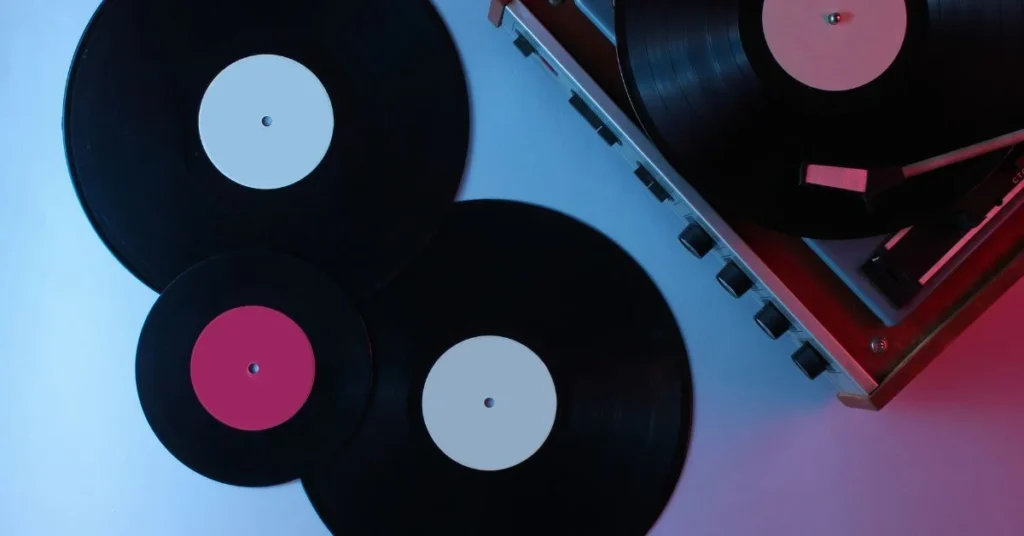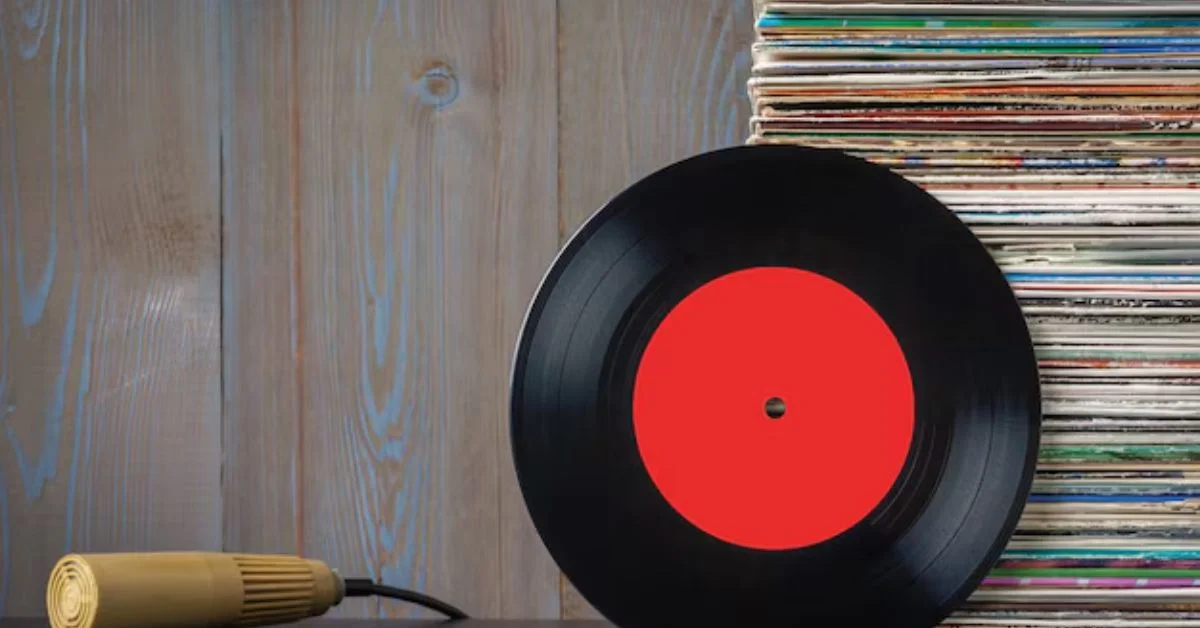Vinyl records have made a remarkable comeback, captivating music lovers and audiophiles alike. Whether you’re a seasoned collector or a curious newcomer, vinyl record appraisals are essential for understanding the value of your collection. This comprehensive guide will explore the factors influencing vinyl record values, the appraisal process, and how to maintain your collection. Additionally, we’ll delve into tools like the vinyl record price guide app and services for free vinyl record appraisals, ensuring you’re equipped with the knowledge to navigate the world of vinyl.
The Resurgence of Vinyl Records
Once considered an obsolete medium, vinyl has witnessed a renaissance in the digital age. Many music enthusiasts argue that vinyl provides a warmer, richer sound compared to digital formats, contributing to its popularity. The tactile experience of handling a record, complete with large album art and liner notes, adds to its nostalgic charm. This resurgence has created a booming market for collectors, driving demand for record appraisal services and tools like vinyl record price guide apps.
Factors Influencing Vinyl Record Appraisals
The value of a vinyl record is determined by several key factors: condition, rarity, demand, and historical significance. Here’s a detailed breakdown of each element:
1. Condition
The condition of a vinyl record is the most critical factor in determining its value. Collectors and appraisers use a standardized grading system to evaluate condition:
- Mint (M): Perfect condition, with no flaws. Both the vinyl and cover are pristine. Records in mint condition are rare and highly sought after.
- Near Mint (NM): Almost perfect, showing minimal signs of handling. These records play flawlessly and have little to no wear.
- Very Good Plus (VG+): A well-maintained record with minor scuffs or scratches that don’t affect playback. The cover may show slight wear but remains intact.
- Very Good (VG): Visible wear such as light scratches and scuffs that may introduce surface noise. The cover may have ring wear, creases, or edge wear.
Tip: Use tools like a vinyl record price guide app to cross-reference records based on condition for accurate valuation.
2. Rarity
Rarity plays a significant role in vinyl record values. A record’s rarity is influenced by:
- Original Pressings: First pressings and limited editions are more valuable than reissues.
- Availability: Records that are no longer in production or were pressed in small quantities command higher prices.
- Special Features: Misprints, alternate versions, and unique packaging can increase rarity and appeal.
For example, the first pressing of The Beatles’ “Please Please Me” with the black and gold Parlophone label is a prized possession among collectors.
3. Demand
The demand for a record significantly affects its value. Albums by iconic artists like David Bowie, Pink Floyd, or Led Zeppelin are perpetually in demand. However, trends, reissues, and artist popularity shifts can cause fluctuations in demand.
Pro Tip: Regularly check online marketplaces or consult free vinyl record appraisals to gauge current demand.
4. Historical Significance
Records that hold historical importance—such as a debut album by a legendary artist or a groundbreaking genre release—are often more valuable. Additionally, albums tied to cultural or social movements carry intrinsic historical value.
For instance, Bob Dylan’s The Times They Are A-Changin’ is highly collectible due to its association with the 1960s civil rights movement.
The Appraisal Process for Vinyl Records
Appraising vinyl records involves a systematic evaluation of their characteristics. While professional record appraisal services are available, you can also conduct your own appraisal by following these steps:
Step 1: Assess the Condition
Carefully inspect the record and its cover for:
- Scratches, scuffs, or warping on the vinyl.
- Tears, creases, or discoloration on the cover.
Assign a grade (Mint, Near Mint, VG+, VG, etc.) based on the condition.
Step 2: Identify the Pressing
Identifying the pressing is crucial for determining rarity and value. Look for:
- Matrix numbers etched on the record.
- Label details and distinguishing features.
- Unique identifiers, such as first pressings or special editions.
Step 3: Research Market Value
Leverage tools like:
- Vinyl record price guide apps for quick value estimates.
- Online platforms like Discogs, Popsike, and eBay to compare prices.
- Free vinyl record appraisal services to cross-check your findings.

Tips for Maintaining Your Vinyl Collection
Preserving your vinyl records is essential for retaining their value. Here are some best practices:
1. Store Records Properly
- Keep records stored vertically to prevent warping.
- Use protective inner and outer sleeves.
- Avoid exposure to direct sunlight, humidity, or extreme temperatures.
2. Handle Records with Care
Always handle records by their edges to avoid fingerprints and oils on the playing surface.
3. Regularly Clean Records
- Use a carbon fiber brush to remove dust before playing.
- For thorough cleaning, invest in a record cleaning machine or use a microfiber cloth with cleaning solution.
4. Stay Updated on the Market
The vinyl market is dynamic. Use forums, collector groups, and vinyl record price guide apps to stay informed about trends and valuations.
5. Seek Professional Help for Rare Records
If you own a rare record, consult a professional record appraisal service for an accurate valuation.
6. Be Cautious with Online Sales
- Verify the authenticity of buyers or sellers.
- Use secure payment methods.
- When possible, inspect records in person.
Tools and Resources for Vinyl Record Appraisals
Vinyl Record Price Guide Apps
These apps are invaluable for quick and accurate valuations. They provide market trends, recent sales data, and tools to catalog your collection.
Free Vinyl Record Appraisals
Some online platforms offer complimentary appraisal services, which can be a great starting point for understanding your collection’s value.
Record Appraisal Services
Professional appraisers bring expertise and credibility, especially for high-value collections.
Conclusion
Vinyl record appraisals are an essential part of the collecting journey, helping enthusiasts understand the value of their collections. By mastering the factors that influence vinyl record values, using tools like vinyl record price guide apps, and following proper maintenance practices, collectors can maximize their investment.
Whether you’re buying, selling, or preserving your records, a thorough understanding of the appraisal process ensures informed decision-making. Vinyl collecting isn’t just about owning music—it’s about curating a tangible connection to history, artistry, and sound.
FAQs
1. What is the best tool for valuing vinyl records?
The vinyl record price guide app is an excellent tool for researching market trends and determining the value of records based on their condition and pressing.
2. Are free vinyl record appraisals reliable?
Yes, free vinyl record appraisals offered by reputable platforms can provide accurate estimates. However, for rare records, a professional appraisal is recommended.
3. How can I find a reliable record appraisal service?
Search for certified appraisers or established record dealers with good reviews. Online forums and collector communities often recommend trusted services.
4. Does album artwork impact vinyl record values?
Yes, iconic or limited-edition album artwork can significantly influence a record’s value, especially if the cover is in mint condition.
5. What factors make a record rare?
Original pressings, limited editions, and unique features like misprints or alternate versions contribute to a record’s rarity.
6. Can cleaning a record affect its value?
Proper cleaning preserves a record’s condition and sound quality, which positively impacts its value. However, improper cleaning methods can damage the vinyl and reduce its value.









